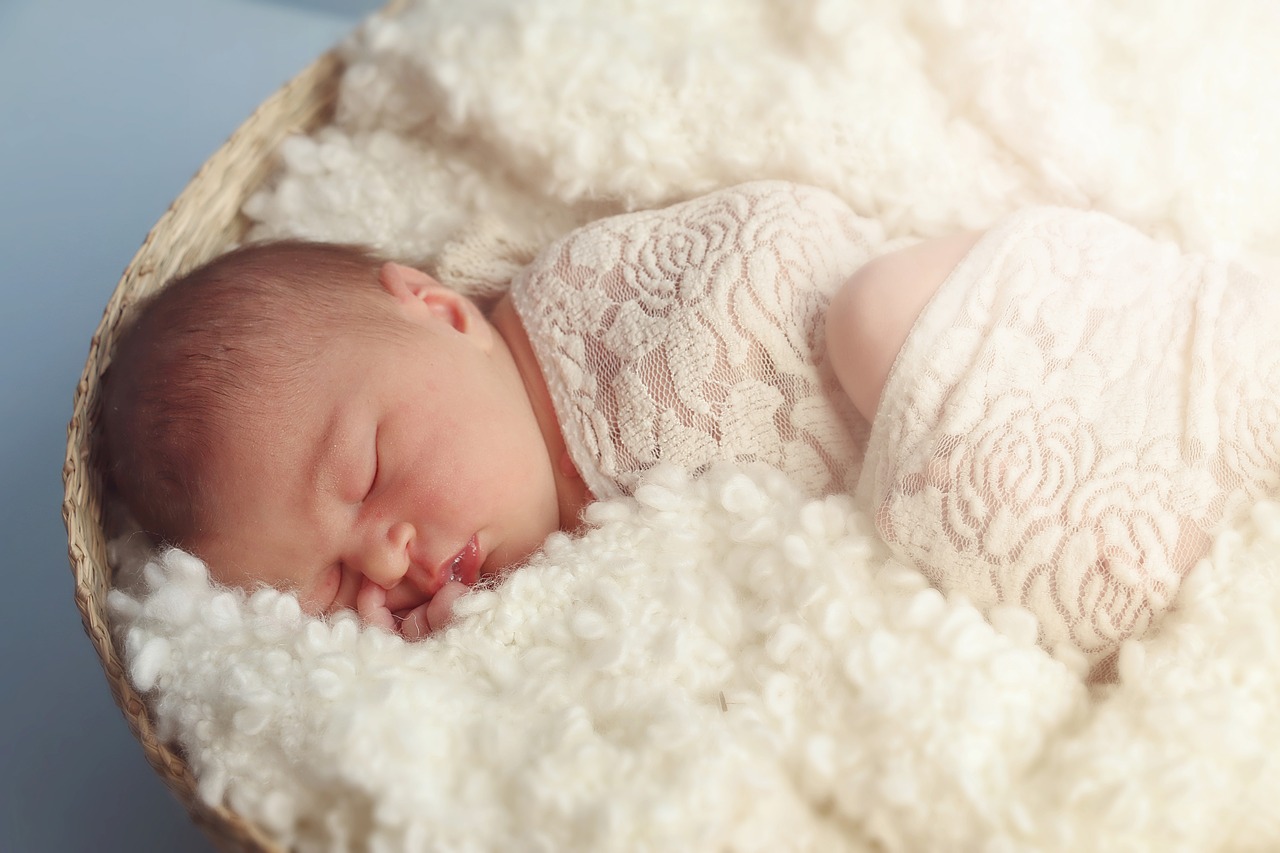Babies need a lot of sleep. Infant sleep occurs during most hours of the day in short segments. As they age, babies and toddlers sleep for more extended periods, with more time sleeping during the night rather than during the day. Kids begin to sleep through the night around the age of 3 months.
In addition to differences in the amount of time babies sleep, there are significantly different sleep cycles in babies as opposed to adults. For example, adults spend more time in REM (rapid eye movement) rest than babies. Their REM sleep cycles are shorter on average than adults.
Nighttime and Daytime Infant Sleep Requirements
Newborns
- 8-9 hours of nighttime sleep
- 8 hours of daytime sleep
- Total: 16 hours
One Month
- 8-9 hours of nighttime sleep
- 7 hours of daytime sleep
- Total: 15.5 hours
Three Months
- 9-10 hours nighttime sleep
- 4-5 hours daytime
- Total: 15 hours
Six Months
- 10 hours of nighttime sleep
- 4 hours of daytime sleep
- Total: 14 hours
Nine Months
- 11 hours of nighttime sleep
- 3 hours of nighttime sleep
- Total: 14 hours
One Year
- 11 hours of nighttime sleep
- 3 hours of daytime sleep
- Total: 14 hours
One and a Half Years
- 11 hours of nighttime sleep
- 2.5 hours of daytime sleep
- Total: 13.5 hours
Two Years
- 11 hours of nighttime sleep
- 2 hours of daytime sleep
- Total: 13 hours
 Getting to Sleep
Getting to Sleep
It is important that you help your baby begin to recognize when it is time for sleep. Rubbing eyes, fussiness, yawning, and nodding off are all signs that your baby is ready to go to sleep.
When you notice cues that your baby is ready for sleep, you can begin to develop a bedtime routine. This way a pattern emerges, and it becomes much easier to get them to sleep and keep them asleep.
Alternatively, if your baby has not developed a sleep cycle, they may begin to wake up at odd hours. Also, if your child always falls asleep in your arms, waking up in their bed may be disruptive and cause more nighttime wakefulness.
Tips for Helping Your Infant Sleep
- Include naptime during the day, as is appropriate for their age.
- Choose a bedtime routine you can stick to (i.e., take a bath, read a book, then listen to music)
- Avoid any stimulation or rousing activity about an hour before bed.
- Put your baby into their bed before they are fully asleep, but while they’re still drowsy.
- If you go to comfort your baby when they wake in the night, be sure to touch and soothe them, but don’t take them out of their bed.
- If your baby keeps crying, come in, touch and comfort, then say goodnight. Repeat this method until they sleep.
- Be consistent. Establish a series of expectations for your infant when going to sleep.
- Practice good sleep hygiene.
- Try sleep training!
Infant Sleep Regression
Some babies go through a time when they experience a regression in sleeping through the night. Reasons for this include separation anxiety, overtiredness, illness, and overstimulation, among other things. Separation anxiety typically develops around the age of 6 months old when babies begin to notice separations. If you disappear for a length of time, they don’t understand that the separation is temporary, and you will be returning.
Responses of Babies Experiencing Separation Anxiety
- Waking and crying in the night when they had previously slept through the night
- Refusing to sleep without a parent
- Crying when a parent leaves the room
- Clinging to a parent each time they separate
AAP (American Academy of Pediatrics) Recommendations on Reducing Risk of SIDS & Sleep-Related Death (birth to one year)
- Breastfeed. One of the best things you can do for your child is to breastfeed. If possible, breastfeed your infant for a minimum of 6 months. However, be careful with nighttime feedings.
- Get immunized. According to the AAP, the risk of SIDS decreases by 50% in infants who are fully vaccinated.
- Try a pacifier.
- Don’t bundle your infant in too many clothes or constrictive outfits. Try swaddling them so that they feel comforted, but so that their heads are not covered.
- Don’t make it a habit of sleeping in the car seat, stroller, or infant seat, as they can increase suffocation risk.
- Be sure they sleep on their back. Side or stomach-sleeping can be dangerous for sleeping infants. Supervise all tummy and side time.
- Use a firm cot or mattress in your baby’s crib. Be sure any sheets are fitted tightly to the bed without gaps or extra folds.
- Do not put any blankets, soft toys, or other objects in your infant’s bed with them.
- Do not raise any portion of their crib without first consulting your pediatric healthcare provider. Often, parents raise the head portion of the crib or purchase special positioners to decrease GI problems. However, you must check with your provider before making this change.
- Don’t sleep with your baby. If you’d like to be close to your baby during the night, you can bring a bassinet close to your bed. Babies should never share beds.
- Be sure there are no dangling wires or dangerous objects near their crib, playpen, or bassinet.
- Do not use drugs or excessive amounts of alcohol around your baby or when you’re in charge of their care. Don’t smoke around your infant. Do not allow anyone to smoke in your home or around you, as toxins can cling to surfaces like clothing and furniture.







